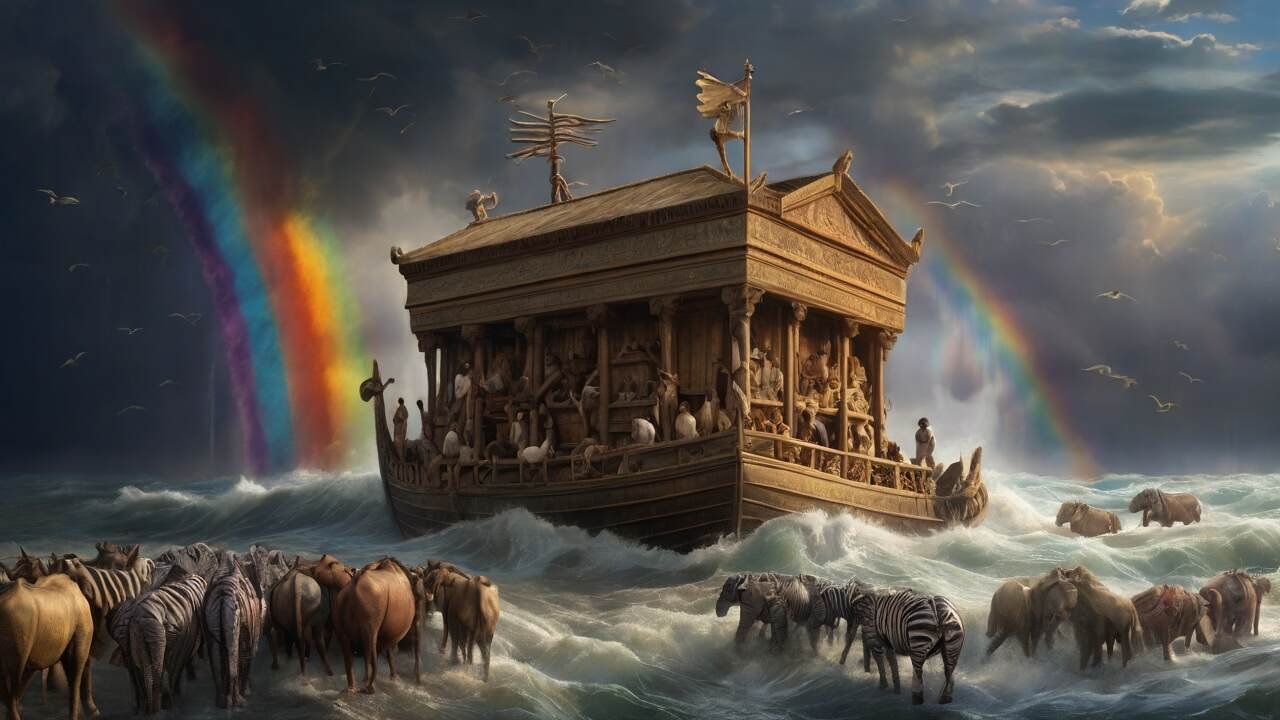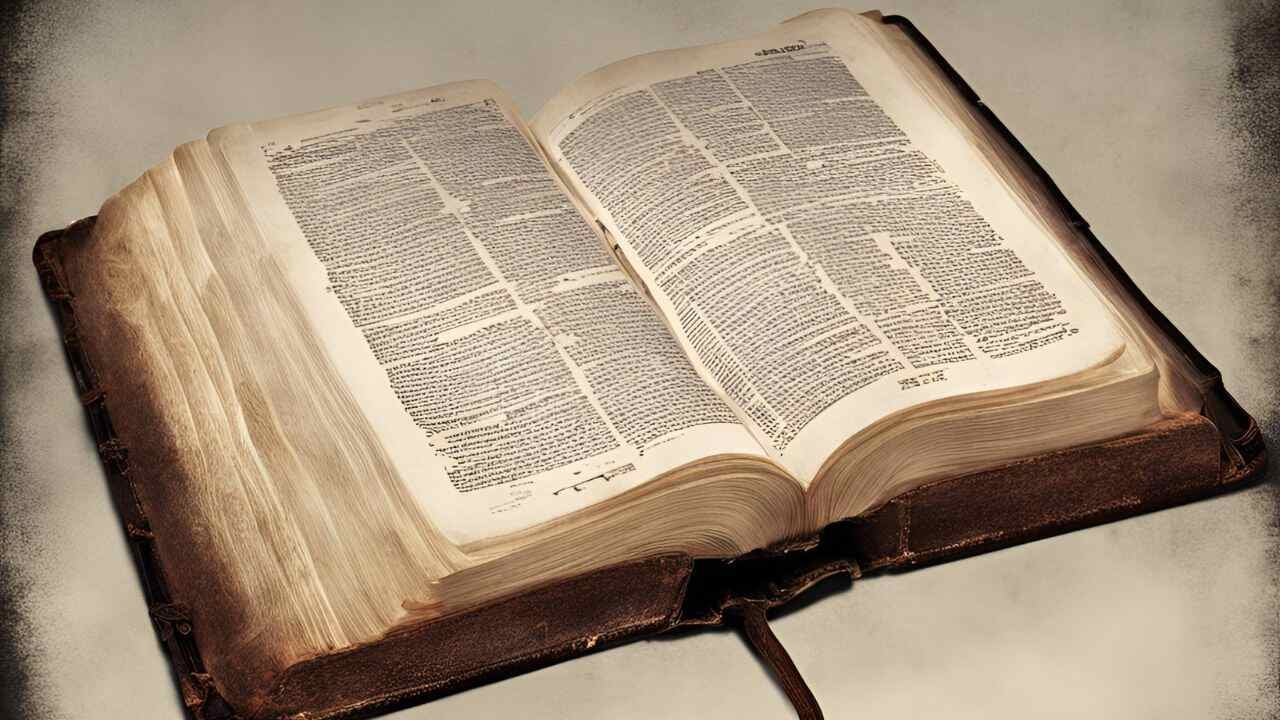The biblical narrative of the Ten Plagues, as recounted in the Book of Exodus, stands as a profound testament to God’s divine power and authority. This series of calamities, inflicted upon the ancient Egyptian kingdom, serves as a pivotal event in the Exodus story, showcasing God’s ability to liberate His chosen people, the Israelites, from the bonds of slavery. The Ten Plagues not only demonstrate God’s sovereignty over the Egyptian gods but also His desire to protect and deliver His followers from oppression.
Key Takeaways
- The Ten Plagues are a series of ten disasters described in the Book of Exodus, which God inflicted on Egypt to convince Pharaoh to free the Israelite slaves.
- These plagues showcase God’s divine power and authority over the Egyptian gods, as well as His ability to protect and deliver the Israelites from bondage.
- The narrative of the Ten Plagues is a pivotal event in the Exodus story, demonstrating God’s sovereignty and His desire to liberate His chosen people.
- The Ten Plagues are a testament to the biblical events of the Exodus from Egypt, highlighting God’s power and the significance of the Passover.
- The narrative of the Ten Plagues in the King James Bible provides a powerful and inspiring account of God’s divine intervention in the lives of His people.
Introduction
The Ten Plagues hold immense significance in the biblical Exodus narrative, marking a pivotal moment when God demonstrated His power to liberate the Israelites from their 400-year bondage in Egypt. Through these plagues, the Almighty not only asserted His sovereignty over the Pharaoh and the Egyptian gods, but also reaffirmed His unwavering commitment to the Israelite people.
The Plagues as a Demonstration of God’s Power
The Ten Plagues served as a powerful display of God’s might and a clear message to both the Egyptians and the Israelites. As the Israelites had begun to doubt God’s ability or willingness to deliver them from their oppression, the plagues were a tangible demonstration of the Lord’s supreme authority and unparalleled power. Through these events, God sought to strengthen the faith of His chosen people and underscore His role as the ultimate ruler of the universe.
The plagues also targeted the Egyptian pantheon of gods, systematically undermining the perceived power of these deities and exposing their impotence in the face of the one true God. This divine intervention not only humbled the Pharaoh and the Egyptian empire, but it also reinforced the Israelites’ understanding of their God as the supreme being, worthy of their unwavering worship and obedience.
“I will pass through the land of Egypt that night, and I will strike all the firstborn in the land of Egypt, both man and beast; and on all the gods of Egypt I will execute judgments: I am the Lord.” (Exodus 12:12)
The Ten Plagues represent a pivotal moment in the Exodus narrative, where God’s demonstration of power not only liberated the Israelites from Pharaoh’s oppressive rule, but also reaffirmed their faith in the one true God and His unshakable commitment to their deliverance.
The Plagues and Their Impact on Egypt
The Ten Plagues that struck Egypt during the Exodus narrative had a profound and devastating impact on the country. These divinely-orchestrated events systematically targeted Egypt’s economy, resources, and even its religious beliefs, ultimately demonstrating the power and authority of the Almighty God.
The Nile Turned to Blood: A Judgment on Egyptian Gods
The first plague, where the Nile River was transformed into blood, was a direct judgment on the Egyptian gods Apis, Isis, and Khnum, who were all associated with the life-giving Nile. This catastrophic event disrupted the Egyptians’ daily routines and severely impacted their agricultural economy, which was heavily dependent on the river. By attacking this fundamental resource, the Israelite God challenged the supremacy of Egypt’s false deities, asserting His dominion over the land.
The Plague of Frogs: A Judgment on the Frog-Headed Goddess
The second plague, the infestation of frogs, specifically targeted the frog-headed goddess Heqet, who was believed to be a deity of fertility and childbirth. The swarms of frogs that invaded every aspect of Egyptian life, from their homes to their food supplies, was a direct challenge to the Egyptians’ religious beliefs and practices. This plague demonstrated the powerlessness of their false gods in the face of the Almighty God’s judgment.
Through these initial plagues, the impact on Egypt’s economy, resources, and religious beliefs foreshadowed the profound consequences the nation would face if they continued to defy the will of the one true God. The Israelite God’s systematic attack on the core aspects of Egyptian life left little doubt about the magnitude of His power and authority.
“The waters of the Nile will be turned to blood. The fish in the Nile will die, and the river will stink; the Egyptians will not be able to drink its water.”
– Exodus 7:17-18
Explain the significance of the Ten Plagues in the King James Bible
The Ten Plagues described in the King James Bible hold immense significance in the biblical narrative, as they demonstrate God’s power and authority over the Egyptian gods and Pharaoh. Each plague was specifically targeted at a different Egyptian deity, challenging the Egyptians’ religious beliefs and exposing the powerlessness of their false gods. Through these miraculous events, God aimed to show the Israelite deliverance from slavery and the Egyptians that He alone is the true and living God, worthy of worship and obedience.
The plagues not only served as a prelude to the Israelites’ ultimate deliverance, but they also highlighted God’s power and His sovereignty over the natural world. The Nile turning to blood, the swarms of frogs, the plague of gnats, and the other supernatural occurrences were clear reminders that the God of the Israelites had absolute control over the forces of nature and the pantheon of Egyptian deities.
Moreover, the Ten Plagues were a crucial part of the Exodus narrative, setting the stage for the Passover and the parting of the Red Sea, which culminated in the Israelites’ miraculous escape from Egyptian bondage. This dramatic series of events not only liberated the Israelites but also demonstrated the significance of the Ten Plagues in the King James Bible as a powerful display of God’s power and His commitment to the deliverance of His people.
| Plague | Significance | Impact on Egyptian Gods |
|---|---|---|
| Nile turned to blood | Judgment on the Egyptian god Hapi, the god of the Nile | Exposed the powerlessness of Hapi to protect the Nile, a vital resource for the Egyptians |
| Frogs | Judgment on the Egyptian goddess Heqet, the goddess of fertility and childbirth | Demonstrated the inability of Heqet to control the plague of frogs, which overran the land |
| Gnats | Judgment on the Egyptian god Geb, the god of the earth | Showed that Geb could not protect the Egyptians from the swarm of gnats that plagued the land |
Through the Ten Plagues in the King James Bible, God revealed His supremacy over the Egyptian gods and Pharaoh, paving the way for the Israelite deliverance from slavery and the establishment of the Israelites as God’s chosen people. This powerful demonstration of God’s power continues to hold profound significance in the biblical narrative, inspiring faith and a deeper understanding of the significance of the Ten Plagues in the Exodus story.
And the LORD said unto Moses, Stretch out thine hand over the waters of Egypt, that they may become blood; and that there may be blood throughout all the land of Egypt, both in vessels of wood, and in vessels of stone.” (Exodus 7:19)
The Plagues and God’s Protection of Israel
Amidst the devastating plagues that struck Egypt, God provided clear protection and distinction for the Israelites. While the Egyptians suffered the full brunt of the divine judgments, the Israelites were spared, demonstrating God’s ability to differentiate between His chosen people and their oppressors. This divine protection further reinforced the Israelites’ faith in God and His promises, while also highlighting the stark contrast between the fate of the Egyptians and the Israelites under God’s sovereignty.
The Distinction Between the Israelites and Egyptians
The book of Exodus in the King James Bible vividly depicts the stark distinction between the Israelites and the Egyptians during the onslaught of the ten plagues. As the plagues ravaged the land of Egypt, the Israelites were miraculously shielded from their devastating effects. This divine intervention not only showcased God’s power but also underscored His unwavering commitment to protecting His chosen people.
The plague of darkness, for instance, engulfed the entire nation of Egypt, yet the Israelites “had light in their dwellings.” Similarly, while the firstborn of the Egyptians were struck down during the final plague, the Israelites were spared through the observance of the Passover. These clear distinctions between the fates of the two peoples demonstrated God’s preferential treatment of the Israelites and His desire to set them apart as a nation under His divine guidance.
| Plague | Impact on Egyptians | Protection for Israelites |
|---|---|---|
| Darkness | Thick darkness over the land of Egypt | The Israelites had light in their dwellings |
| Death of Firstborn | The firstborn of the Egyptians were struck down | The Israelites were spared through the Passover |
The distinction between the Israelites and Egyptians during the plagues not only demonstrated God’s power but also His divine purpose in preserving His chosen people. This contrast serves as a powerful reminder of God’s unwavering protection and His ability to differentiate between those who are under His favor and those who are not.

And the Lord said unto Moses, I will bring one more plague upon Pharaoh, and upon Egypt; afterwards he will let you go hence: when he shall let you go, he shall surely thrust you out hence altogether.” (Exodus 11:1)
This biblical passage underscores the divine intervention that would ultimately lead to the Israelites’ freedom from Egyptian bondage. The plagues were not merely a display of God’s power but a means to secure the release of His people and establish them as a nation under His protection.
The Passover and the Final Plague
The Ten Plagues unleashed by God upon Egypt culminated in the final and most devastating plague – the death of the firstborn. This plague, however, spared the Israelites who had faithfully followed God’s instructions to mark their doorposts with the blood of a lamb. This event, known as the Passover, not only signified God’s judgment on the Egyptians but also foreshadowed the ultimate sacrifice of Jesus Christ, the Lamb of God, whose blood would deliver humanity from the bondage of sin.
The Passover was a pivotal moment in the Exodus narrative. When Pharaoh witnessed the death of his own firstborn son, his resolve finally broke, and he released the Israelites from their 400-year captivity in Egypt. This dramatic event marked a pivotal turning point, as God’s deliverance of the Israelites from the final plague paved the way for their liberation and the Israelite liberation from the oppressive rule of the Egyptians.
The Passover not only signified God’s power and sovereignty but also foreshadowed the ultimate sacrifice of the Lamb of God, Jesus Christ. Just as the Israelites were spared from the firstborn death by the blood of the lamb, so too are believers in Christ spared from the bondage of sin through the sacrifice of the Lamb of God. The Passover, therefore, stands as a powerful symbol of God’s deliverance and the hope of salvation that would be fully realized in the life, death, and resurrection of Jesus Christ.
“For even Christ our Passover is sacrificed for us.” (1 Corinthians 5:7)
The Passover and the final plague of the firstborn death marked a pivotal moment in the Exodus narrative, where the power and sovereignty of God were clearly demonstrated. This event not only secured the Israelite liberation from their captivity in Egypt but also foreshadowed the ultimate sacrifice of the Lamb of God, paving the way for the redemption of all humanity.
Conclusion
The Ten Plagues described in the King James Bible stand as a powerful testament to God’s sovereignty and His unwavering commitment to liberating His chosen people from oppression. Through these miraculous events, the Almighty systematically challenged the authority of the Egyptian gods, exposing their powerlessness and the futility of Pharaoh’s resistance. The plagues not only resulted in the Israelites’ freedom but also instilled a deep sense of awe and reverence for the true and living God among the surrounding nations.
The Exodus narrative, with the Ten Plagues at its core, remains a captivating and relevant account that continues to inspire and enlighten readers today. The significance of the Ten Plagues lies in their ability to demonstrate God’s power, showcase His protection of the Israelites, and ultimately lead to the deliverance of His chosen people from the shackles of oppression. This biblical narrative serves as a timeless reminder of the boundless might and unwavering love of the Almighty God.
As we reflect on the profound impact of the Ten Plagues, we are reminded of the enduring and transformative nature of the Exodus story. It stands as a testament to the fact that no obstacle is too great for the God who holds the power to part the seas and overthrow the mightiest of kingdoms. The lessons of the Ten Plagues continue to resonate, inspiring us to trust in God’s plan, surrender to His will, and embrace the freedom He so graciously offers.
FAQ
What is the significance of the Ten Plagues in the King James Bible?
The Ten Plagues are a pivotal event in the Exodus narrative, demonstrating God’s sovereignty and His desire to liberate the Israelites from their 400-year bondage in Egypt. The plagues showcase God’s divine power and authority over the Egyptian gods, as well as His ability to protect and deliver His chosen people.
How did the Ten Plagues impact Egypt?
The Ten Plagues systematically attacked Egypt’s economy, resources, and religious beliefs. Each plague targeted a different Egyptian deity, challenging the Egyptians’ religious practices and exposing the powerlessness of their false gods.
What was the significance of the Passover in the Exodus story?
The Passover, which occurred during the final plague of the firstborn, not only signified God’s judgment on the Egyptians but also foreshadowed the ultimate sacrifice of Jesus Christ, the Lamb of God, whose blood would deliver humanity from the bondage of sin.
How did God protect the Israelites during the plagues?
While the Egyptians suffered the full brunt of the plagues, the Israelites were spared, demonstrating God’s ability to differentiate between His chosen people and their oppressors. This divine protection further reinforced the Israelites’ faith in God and His promises.
What was the ultimate outcome of the Ten Plagues?
The Ten Plagues culminated in the Israelites’ freedom from their 400-year captivity in Egypt, marking a pivotal moment in the Exodus narrative. The plagues served as a powerful demonstration of God’s sovereignty and His unwavering commitment to liberating His chosen people from oppression.








